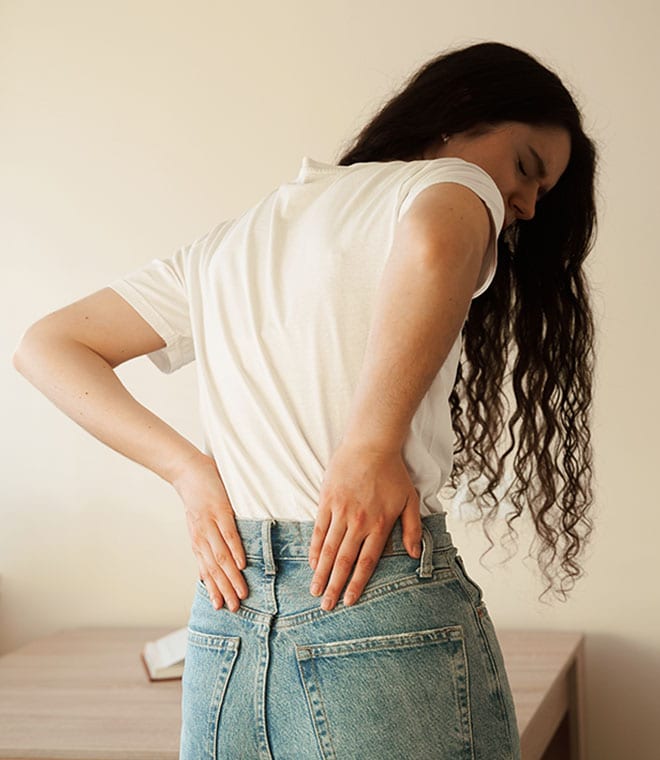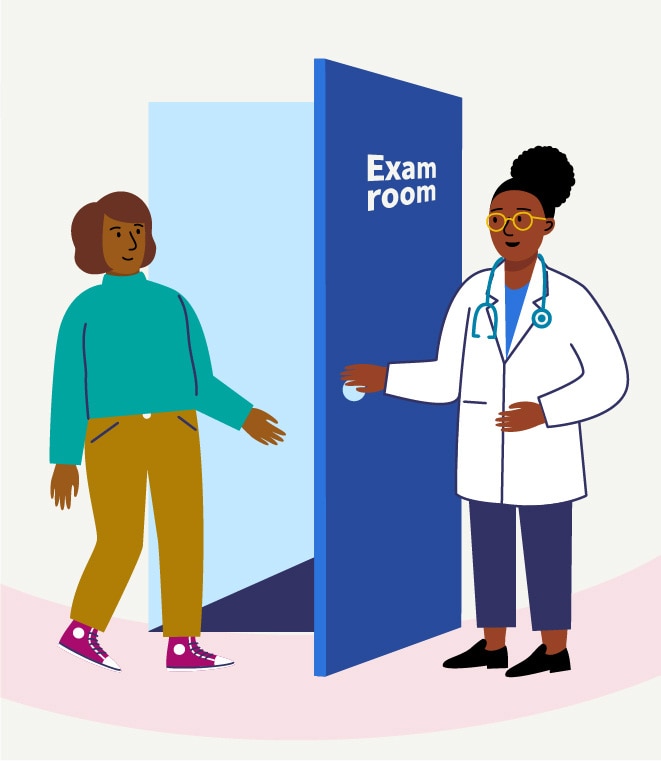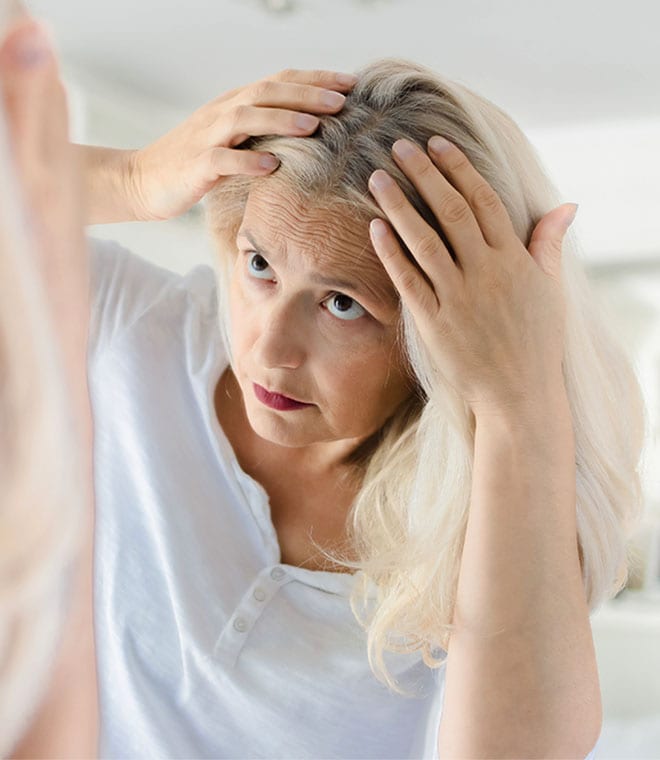Health
Hot flashes: Causes, symptoms and treatments
By Jenilee Matz, MPH Feb 19, 2025 • 5 min
Hot flashes, or feelings of intense waves of heat, affect about 75% to 80% of women as they approach menopause (the time when menstruation stops). In fact, hot flashes are one of the most common symptoms of menopause, and they tend to begin during perimenopause (the transition phase of several years leading up to menopause). During this time, women's bodies start producing less of the hormones estrogen and progesterone, which can lead to bothersome symptoms, including hot flashes.
What you may experience during a hot flash
During a hot flash, you may feel a sudden feeling of warmth, usually in your face, neck and chest. This sensation can then spread to the rest of your body, causing you to feel very uncomfortable. Your skin may redden and become blotchy, your heart rate may increase, and you may experience anxiety. You may also start sweating, which can leave you feeling chilled after the hot flash. When hot flashes occur at night, they're called "night sweats." Hot flashes can vary in intensity and frequency from woman to woman.
How long do hot flashes last?
A single hot flash can last from one to five minutes. Hot flashes may occur as frequently as once per hour during the day and night, or less than once per day. They’re unique to each woman. While the frequency of hot flashes tends to increase during perimenopause and peak during the first two years of postmenopause, and eventually decline, women can experience hot flashes anywhere from six months to up to 10 years. However, some studies show the average is about three to five years.
Who gets hot flashes?
Most women experience hot flashes during the menopausal transition. About 40% of women have hot flashes in the early transition, while 60% to 80% of women experience these during late menopause and early postmenopause phase. While hot flashes are common, certain factors are linked with an increased risk, including obesity, smoking, lack of physical activity and African American ethnicity.
Managing hot flashes
At this time, there's no cure for hot flashes, but treatments may help ease symptoms. Hot flashes are often managed with lifestyle changes, hormonal therapy or other medications. Treatment specifics depend on the severity of hot flashes, medical history and personal preferences.
If you have mild hot flashes, the following tips may bring you relief:
- Reduce the temperature in your home
- Use fans and consider carrying a portable fan when away from home
- Dress in layers that can easily be taken off when you feel a hot flash coming on
- Avoid known hot flash triggers, including alcohol, spicy foods and caffeine
- If you smoke, seek help to quit smoking
- Reach and maintain a healthy weight
- Try yoga or other mind-body, self-calming techniques, such as deep breathing and meditation. Some research shows that these practices may help improve symptoms of menopause.
If lifestyle changes aren't enough to relieve your hot flash symptoms, see your healthcare provider to discuss other possible options. They may prescribe an estrogen-based hormonal therapy. If you do not wish to opt for hormonal therapy or you’re not a good candidate, your provider may prescribe other medicines to help ease hot flashes. These may include medicines used to treat depression, specifically selective serotonin reuptake inhibitors (SSRIs) or serotonin-norepinephrine reuptake inhibitors (SNRIs). These medications are taken at lower dosages than a person with depression would take. Other nonhormonal medication options may include:
- antiseizure medications, such as gabapentin
- blood pressure medications, such as clonidine
- neurokinin 3 (NK3) receptor antagonists, such as fezolinetant
- a combination of medicines
While hot flashes are very common during, before and after menopause, know that you don't have to suffer through them. Lifestyle changes can help relieve mild hot flashes, and hormonal therapy and other nonhormonal medications may help treat more severe hot flashes. Work with your healthcare provider to find the best way to help manage your hot flashes.
Updated by Julie McDaniel, MSN, RN, CRNI, February 2025.
Sources:
- https://www.uptodate.com/contents/menopausal-hot-flashes
- https://www.nia.nih.gov/health/hot-flashes-what-can-i-do
- https://womenshealth.gov/menopause/menopause-symptoms-and-relief
- https://www.acog.org/womens-health/experts-and-stories/the-latest/an-ob-gyns-top-tips-for-managing-hot-flashes
- https://www.acog.org/womens-health/experts-and-stories/ask-acog/what-can-i-do-to-help-with-hot-flashes
- https://www.uptodate.com/contents/non-estrogen-treatments-for-menopausal-symptoms-beyond-the-basics/print
- https://www.fda.gov/news-events/press-announcements/fda-approves-novel-drug-treat-moderate-severe-hot-flashes-caused-menopause




